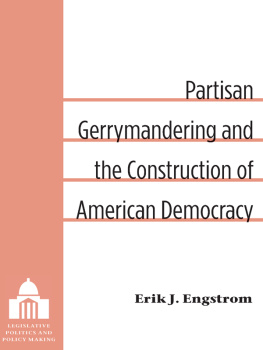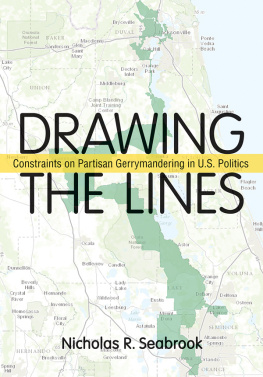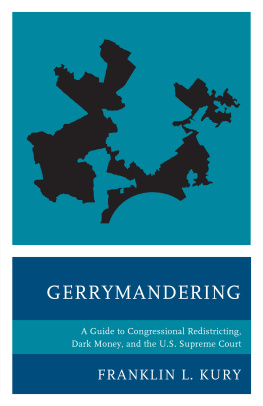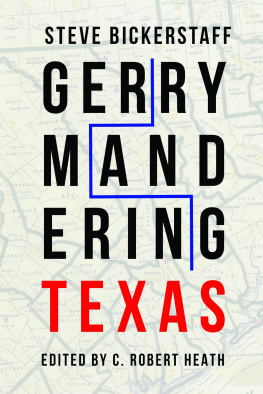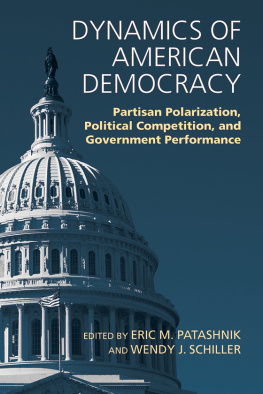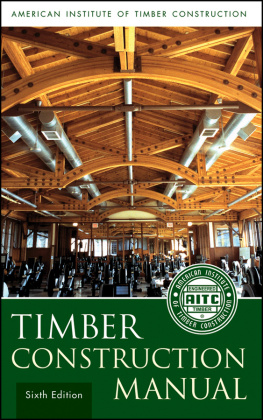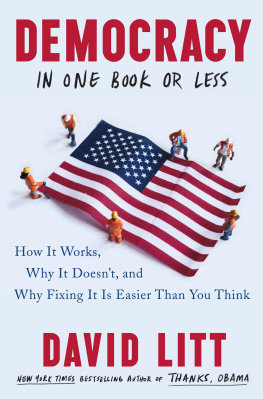Engstrom - Partisan Gerrymandering and the Construction of American Democracy
Here you can read online Engstrom - Partisan Gerrymandering and the Construction of American Democracy full text of the book (entire story) in english for free. Download pdf and epub, get meaning, cover and reviews about this ebook. year: 2018, publisher: The University of Michigan Press, genre: Politics. Description of the work, (preface) as well as reviews are available. Best literature library LitArk.com created for fans of good reading and offers a wide selection of genres:
Romance novel
Science fiction
Adventure
Detective
Science
History
Home and family
Prose
Art
Politics
Computer
Non-fiction
Religion
Business
Children
Humor
Choose a favorite category and find really read worthwhile books. Enjoy immersion in the world of imagination, feel the emotions of the characters or learn something new for yourself, make an fascinating discovery.
Partisan Gerrymandering and the Construction of American Democracy: summary, description and annotation
We offer to read an annotation, description, summary or preface (depends on what the author of the book "Partisan Gerrymandering and the Construction of American Democracy" wrote himself). If you haven't found the necessary information about the book — write in the comments, we will try to find it.
Engstrom: author's other books
Who wrote Partisan Gerrymandering and the Construction of American Democracy? Find out the surname, the name of the author of the book and a list of all author's works by series.
Partisan Gerrymandering and the Construction of American Democracy — read online for free the complete book (whole text) full work
Below is the text of the book, divided by pages. System saving the place of the last page read, allows you to conveniently read the book "Partisan Gerrymandering and the Construction of American Democracy" online for free, without having to search again every time where you left off. Put a bookmark, and you can go to the page where you finished reading at any time.
Font size:
Interval:
Bookmark:
 Page i
Page i In Partisan Gerrymandering and the Construction of American Democracy, Erik J. Engstrom offers an important, historically grounded perspective on the stakes of congressional redistricting by evaluating the impact of gerrymandering on elections and on party control of the U.S. national government from 1789 through the reapportionment revolution of the 1960s. In this era before the courts supervised redistricting, state parties enjoyed wide discretion with regard to the timing and structure of their districting choices. Although Congress occasionally added language to federal-apportionment acts requiring equally populous districts, there is little evidence this legislation was enforced. Essentially, states could redistrict largely whenever and however they wanted, and so, not surprisingly, political considerations dominated the process.
Engstrom employs the abundant cross-sectional and temporal variation in redistricting plans and their electoral results from all the statesthroughout U.S. historyin order to investigate the causes and consequences of partisan redistricting. His analysis reveals that districting practices across states and over time systematically affected the competitiveness of congressional elections, shaped the partisan composition of congressional delegations, and, on occasion, decided party control of the House of Representatives. In conclusion, Engstrom places recent developments in redistricting politics and scholarship within the larger historical context uncovered in this book.
Erik J. Engstrom is Associate Professor of Political Science at the University of California, Davis.
Page iiLEGISLATIVE POLITICS & POLICY MAKING
Series Editors
Janet M. Box-Steffensmeier, Vernal Riffe Professor of Political Science, The Ohio State University
David Canon, Professor of Political Science, University of Wisconsin, Madison
The Floor in Congressional Life
ANDREW J. TAYLOR
The Influence of Campaign Contributions in State Legislatures: The Effects of Institutions and Politics
LYNDA W. POWELL
The Evolution of American Legislatures: Colonies, Territories, and States, 16192009
PEVERILL SQUIRE
Getting Primaried: The Changing Politics of Congressional Primary Challenges
ROBERT G. BOATRIGHT
Ambition, Competition, and Electoral Reform: The Politics of Congressional Elections Across Time
JAMIE L. CARSON AND JASON M. ROBERTS
Partisan Gerrymandering and the Construction of American Democracy
ERIK J. ENGSTROM
Erik J. Engstrom
The University of Michigan Press
Ann Arbor
Copyright by the University of Michigan 2013
All rights reserved
This book may not be reproduced, in whole or in part, including illustrations, in any form (beyond that copying permitted by Sections 107 and 108 of the U.S. Copyright Law and except by reviewers for the public press), without written permission from the publisher.
Published in the United States of America by The University of Michigan Press
Manufactured in the United States of America Printed on acid-free paper
Printed on acid-free paper
2016 2015 2014 2013 4 3 2 1
A CIP catalog record for this book is available from the British Library.
Library of Congress Cataloging-in-Publication Data
Engstrom, Erik J.
Partisan gerrymandering and the construction of American democracy / Erik J. Engstrom.
pages cm. (Legislative politics and policy making)
Includes bibliographical references and index.
ISBN 978-0-472-11901-1 (hardback) ISBN 978-0-472-02952-5 (e-book)
1. GerrymanderingUnited States. 2. Apportionment (Election law)United States. 3. Election districtsUnited States. 4. VotingUnited States. 5. Representative government and representationUnited States. 6. United StatesPolitics and government. I. Title.
JK1341.E64 2013
328.73'073455dc23
2013015656
Page vIn writing this book, I have incurred many debts. At an early stage, Gary Cox, Mathew McCubbins, and, especially, Sam Kernell provided encouragement and insight. Janet Box-Steffensmeier and David Canon, the series editors for Legislative Politics & Policy Making, as well as the two anonymous scholars who reviewed the manuscript for the University of Michigan Press, offered careful readings and constructive advice. Jack Reilly and Matthew Pietryka conducted excellent research assistance. Georg Vanberg, Alan Wiseman, Chad Rector, Nathan Monroe, Chris Den Hartog, Charles Stewart, and Lee Sigelman provided helpful comments on various portions of the manuscript. In addition to commenting on aspects of the manuscript, Jamie Carson and Jason Roberts also shared in some of the research that forms the basis of . Finally, I dedicate this book to my wife Mary and my daughter Emma for their love and support.
Page vi Page viiThis book evaluates the impact of congressional redistricting on elections and control of U.S. national government from 1789 to the reapportionment revolution of the 1960s. The motivating question is one that scholars seldom ask: what was redistricting like in the past? It turns out that the answer to this question is essential for understanding both the past and present of American politics.
Almost all previous research on congressional redistricting concentrates on the period after the 1960s. In the mid-1960s, the U.S. Supreme Court outlawed malapportioned electoral districts for both state legislatures and the U.S. House of Representatives. This transformative legal revolution produced a massive wave of redistricting across the nation that shifted the partisan landscape in state legislatures across the country and fundamentally redistributed power in American politics. In addition, this reapportionment revolution led to the creation of a large scholarly literature devoted to studying the causes and consequences of the modern decennial-redistricting process. In this now-vast literature, redistricting prior to the 1960s receives brief treatment, although the years before 1964 constitute nearly 75 percent of the United States' nearly 225-year history.
Such narrowly focused accounts suffer from two principal disadvantages. First, it has led political scientists and historians to radically underestimate the power of gerrymandering in shaping the development of American politics. Throughout the 19th century, partisan gerrymandering systematically structured the competitiveness of congressional elections, Page 2 the partisan composition of congressional delegations, and, on occasion, decided party control of the House of Representatives. Gerrymandering roiled state legislatures across the country, and profoundly shaped the tumult of 19th-century politics and policy. The outcomes of these collisions continue to cast long shadows over modern American politics.
Second, the failure to examine the history of redistricting has led students of contemporary American politics to misunderstand the context in which modern redistricting takes place. Modern research has argued that redistricting produces, at best, only a minimal impact on the partisan balance of power in Congress. However, no consensus has emerged about why gerrymandering has had such little impact. Some scholars have argued that constraints on gerrymandering in the modern periodincluding court oversight, one-person, one-vote mandates, and demands by congressional incumbents for secure seatshave made it virtually impossible to engage in a full-blown partisan gerrymander. Others contend that the partisan gains to be had from gerrymandering are limited, regardless of the institutional configuration under which redistricting takes place. Moving beyond the relatively fixed institutional and political context of modern redistricting provides a powerful opportunity to assess these competing explanations.
Font size:
Interval:
Bookmark:
Similar books «Partisan Gerrymandering and the Construction of American Democracy»
Look at similar books to Partisan Gerrymandering and the Construction of American Democracy. We have selected literature similar in name and meaning in the hope of providing readers with more options to find new, interesting, not yet read works.
Discussion, reviews of the book Partisan Gerrymandering and the Construction of American Democracy and just readers' own opinions. Leave your comments, write what you think about the work, its meaning or the main characters. Specify what exactly you liked and what you didn't like, and why you think so.

